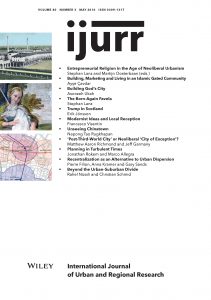This article analyses the development and marketing of Islamic gated communities in Basaksehir, Istanbul. It demonstrates how a blueprint of public–private urban development was appropriated by middle-class Islamists. The gated communities in Basaksehir—which, at the outset, were not explicitly religious—gradually became attractive to religious actors searching for enclosed urban enclaves where Islamic communities would be protected against perceived moral-urban threats. While urban-religious enclaves appear to bear similarities to pre-modern Ottoman Islamic urban enclaves, the rise of contemporary Islamic gated communities should be understood in light of the recent coming to power of the Islamist Turkish government. In cooperation with this government, housing development agencies approached Islamic investors to find capital for their public–private housing projects. One of the results of this form of urban development is that, contrary to pre-modern Ottoman Islamic urban enclaves, the Islamic gated communities are homogenous in terms of economic class, catering specifically to the Islamic middle classes. Moreover, people who invest in Basaksehir desire an urban-religious lifestyle that differs from the ‘traditional’ religious lifestyle experienced in ‘traditional’ Islamic neighbourhoods. The specific urban-religious configuration generates a new type of Islam that better fits middle-class values and a middle-class lifestyle.

